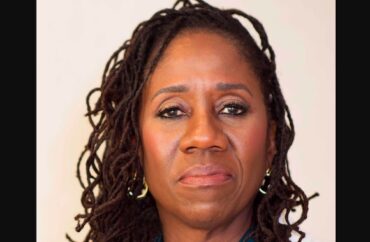
Straight from critical race theory: Art and culture must work ‘alongside legal solutions’
A professor at Harvard Law School told a crowd this past Wednesday about her “vision” for a “new democracy” — and it comes straight from the critical race theory playbook.
Sherrilyn Ifill (pictured), former president of the NAACP Legal Defense and Educational Fund, and soon-to-be founding director of the 14th Amendment Center for Law & Democracy at Howard University, likened violence such as the January 6 “insurrection” to the 19th-century Reconstruction era in the U.S., The Crimson reports.
“I believe and say often that we are in a democratic crisis,” Ifill said. “I see no reason to pretend that we are not, and in fact, I see a danger in pretending that we are not. Part of the crisis we are in is a law crisis, a crisis in the rule of law, in the legitimacy of law and legal actors, of lawyers and of judges.”
Using terms such as “transformative change,” Ifill claimed the U.S. is “ill-suited” to create and maintain a “multiracial democracy premised on ideas of equality and justice,” but it nevertheless can “mine […] some of the tools that actually work.”
“We can’t afford to throw out the baby with the bathwater,” she said. “That is, we should be mining our system for some of the gems […]
In particular, Ifill said she took inspiration from the 14th Amendment — one of three passed in the wake of the Civil War as part of what she called the country’s “Second Founding.”
“The 14th Amendment is really the provision in the Constitution to my mind that confronts with a measure of honesty the fact that those very guarantees and the project of this democracy are threatened by two powerful forces from within: the stubbornness of white supremacy and the threat constituted by the spirit of insurrection,” Ifill said.
“In its promise, its power, and pragmatism, it is in my view the most dynamic and potentially most powerful provision of our Constitution,” she added.
Ifill also said art and culture must work “alongside legal solutions” in a new democracy.
“There must be a part of this project that engages artistic expression,” she said. “While we the lawyers are working on litigation and bringing the cases, we’re tied together with those people from whom imagination is their bread and butter.”
This is straight from the pages of critical race theory and was artfully refuted over two decades ago by Seventh Circuit Court of Appeals Judge Richard Posner:
“Rather than marshal logical arguments and empirical data,” Posner said, “critical race theorists tell stories — fictional, science-fictional, quasi-fictional, autobiographical, anecdotal—designed to expose the pervasive and debilitating racism of America today.
“By repudiating reasoned argumentation, the storytellers reinforce stereotypes about the intellectual capacities of nonwhites.”
MORE: Political scientist’s new book analyzes ‘identity trap’ for democracy
MORE: It’s election season, so let the academics share their beefs about U.S. democracy
IMAGE: Harvard Law School




Please join the conversation about our stories on Facebook, Twitter, Instagram, Reddit, MeWe, Rumble, Gab, Minds and Gettr.